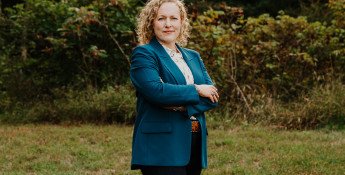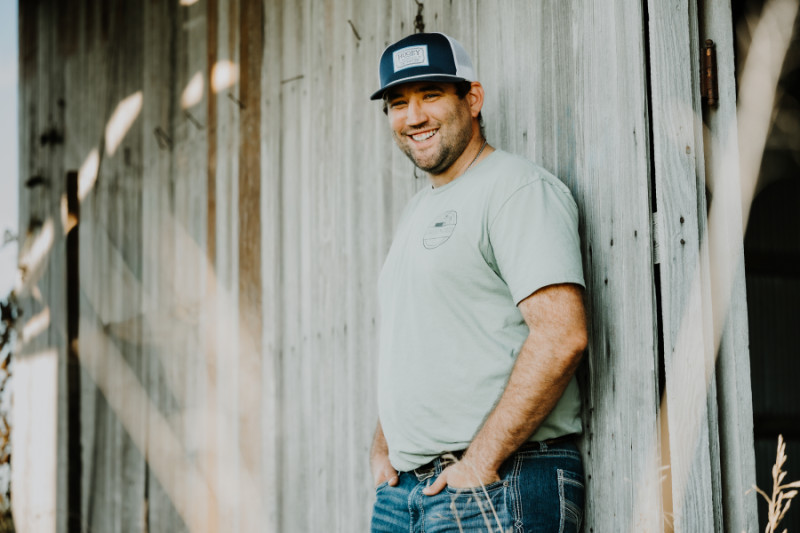By Sheridan Wimmer on October 17, 2025
Pottawatomie County farmer, rancher receives award for mental health advocacy
Thomas Eisenbarth believes in vulnerability among farmers, ranchers, rural community members
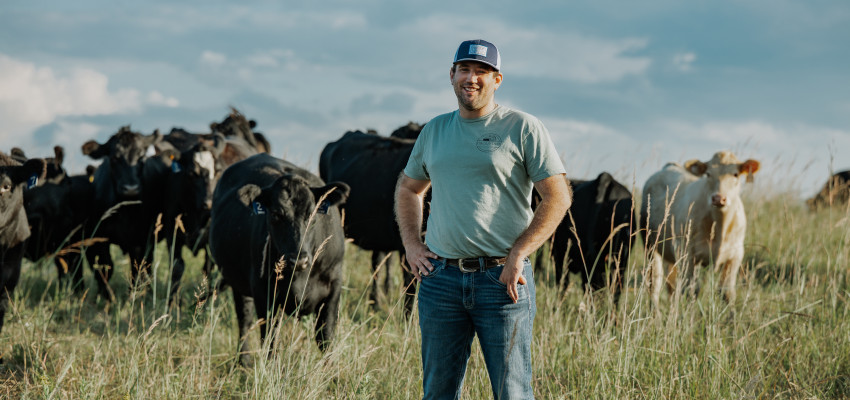
Strength is subjective. It’s defined differently depending on who you ask, what their individual life experiences are and the context behind the conversation. Even physical strength is relative. For Thomas Eisenbarth, a farmer, rancher, precision agriculture instructor at Highland Community College’s Baileyville campus and founder of Grounded Ag, strength is not determined by the pounds of iron you can deadlift or in a quantitative manner. Rather, it’s in how you react when you aren’t OK.
“I give a new definition to the word strong,” Eisenbarth says. “To me, it’s having the strength to say, ‘I’m not OK. I’m going to go get help.’ It’s OK to not be OK. It’s not OK to stay not OK.”
Eisenbarth was selected as Kansas Farm Bureau’s 2025 Rural Minds Matter Young Advocate of the Year award winner for his openness in sharing personal connections to mental health struggles and for using his platform to normalize these conversations in agriculture.
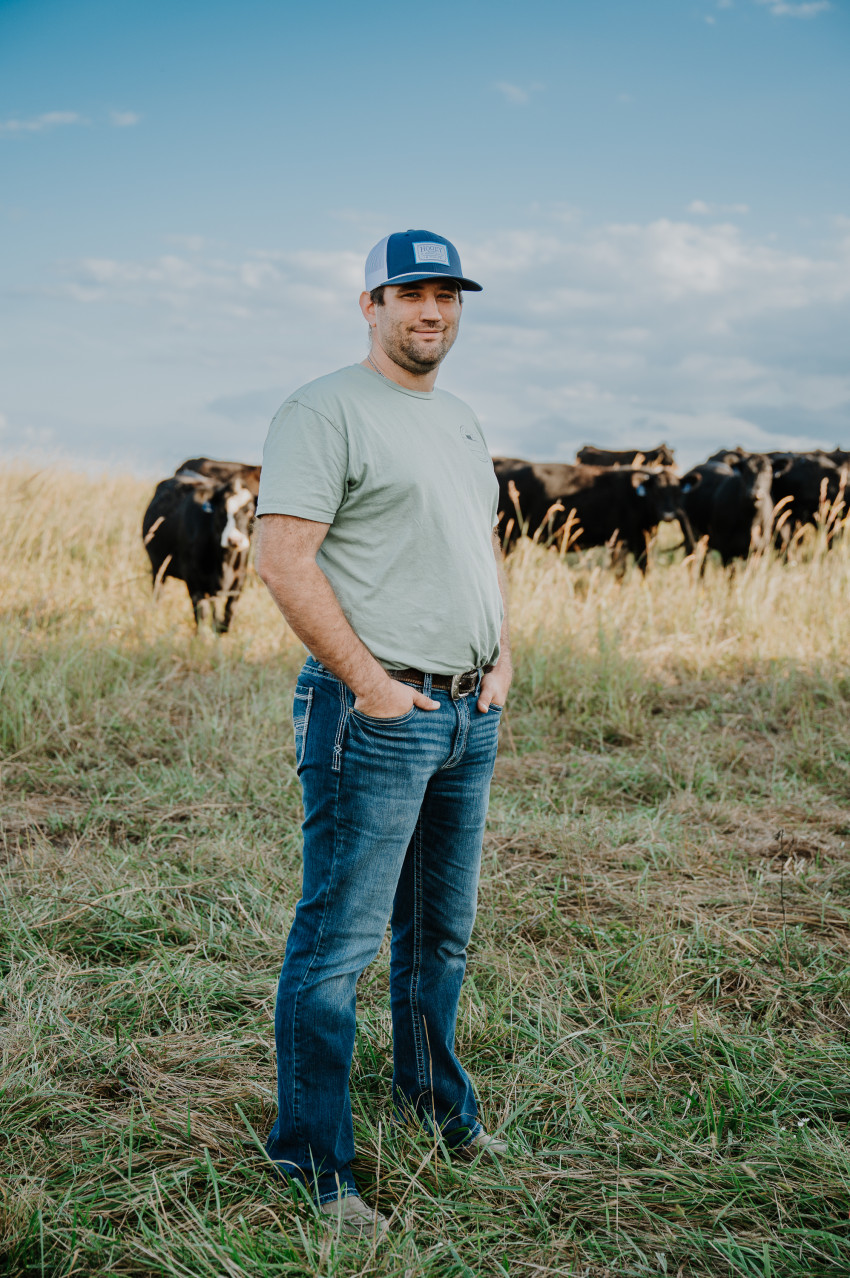 His experience as a farmer and rancher in Pottawatomie County gives him a front-row seat to the challenges and stressors of agricultural life. That connection makes him an empathetic advocate who understands what that profession brings.
His experience as a farmer and rancher in Pottawatomie County gives him a front-row seat to the challenges and stressors of agricultural life. That connection makes him an empathetic advocate who understands what that profession brings.
“The agriculture industry is a beautiful industry, and it's a beautiful way of life,” Eisenbarth says. “But there are also a lot of nuances to this way of life. I’ve thought for a long time about how to fix those issues — the long hours, the stress, the family dynamics — and there’s not really a fix, but instead a fine tune and structure to the conversations we have and how we relate to one another.”
TURNING PAIN INTO PURPOSE
Eisenbarth — ever a farmer — creates an analogy other farmers can connect to when the topic of mental health is brought up: the function of running a tractor.
“Through my journey, I've figured out I work in dials, not switches,” Eisenbarth says. “I always think about it like a tractor cab. There are dials, then there are switches. As an industry, we’re not trying to turn switches on and off in the mental health space. We're just trying to fine tune the dial as far as being comfortable having these types of conversations.”
While the stigma of talking about mental health in agriculture has improved, it’s still present. According to the American Farm Bureau Federation, 59 percent of rural adults say there is at least some stigma around stress and mental health in the agriculture community, including 63 percent of farmers and farm workers. Eisenbarth is advocating for change — especially for men in the industry.
“As a man raised in a rural setting, we didn’t talk about feelings,” Eisenbarth admits. “It simply wasn’t something that was done.”
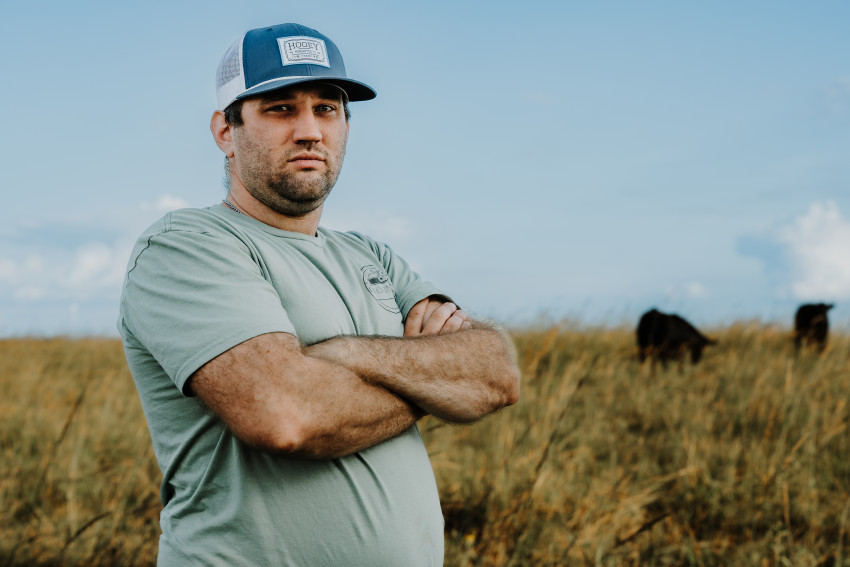 That reluctant nature has been the source of Eisenbarth’s mission and passion behind conversations. Growing up in an environment where talking about feelings wasn’t the norm caused some family members internal struggles, which led to heartbreak.
That reluctant nature has been the source of Eisenbarth’s mission and passion behind conversations. Growing up in an environment where talking about feelings wasn’t the norm caused some family members internal struggles, which led to heartbreak.
In 1997, one of Eisenbarth’s family members suffered in silence to the point where no one wants a loved one to see.
“I lost an uncle who suffered in silence that year,” Eisenbarth says. “Watching how that shaped my family and my childhood, it left a lasting impact. As painful as that experience will always be for me and my family, it put it in my heart to turn that pain into purpose.”
VALIDATION AND VULNERABILITY MAKE A DIFFERENCE
Because of his own difficult experience and by utilizing the dials, not switches mentality, Eisenbarth has turned up the volume on his efforts to connect with other farmers and ranchers about mental health.
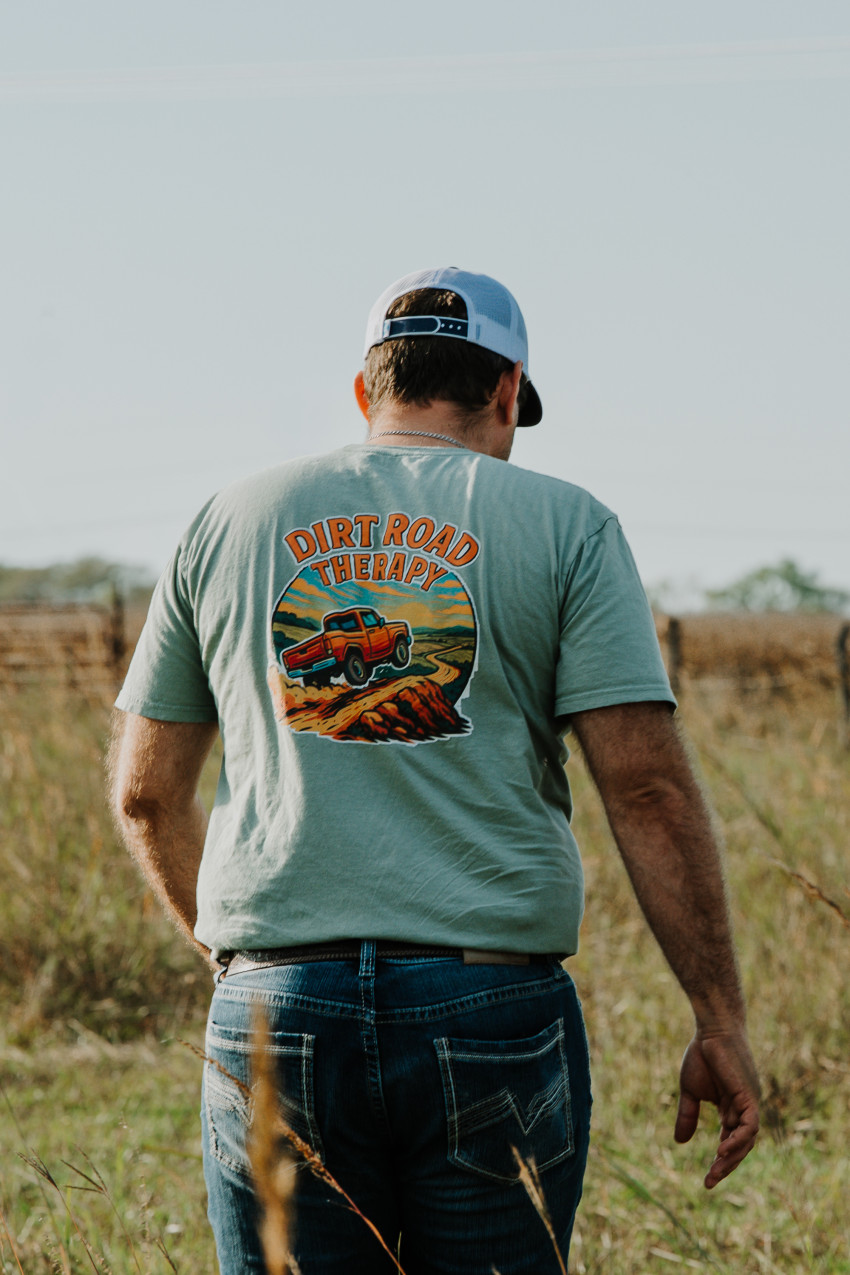 He utilizes what he calls “V-squared” as an empathetic, approachable way to connect and have difficult conversations.
He utilizes what he calls “V-squared” as an empathetic, approachable way to connect and have difficult conversations.
“V-squared stands for validation and vulnerability,” Eisenbarth says. “It’s a simple idea with the power to change conversations. Validation is the first step — acknowledging that farming is tough and what someone is feeling is valid. The worst thing you can do is tell them to toughen up. Vulnerability draws out vulnerability. When you open up about your own struggles, it gives others permission to do the same.
“Through these methods, if I can talk to a million people and even save just one — it’s worth every effort.”
FARMING EMOTIONAL INTELLIGENCE
Eisenbarth is an open book about his journey – saying he is a strong believer in cognitive behavioral therapy and being emotionally intelligent. Being able to recognize the emotions you’re feeling when you’re feeling them is half of the battle, and for Eisenbarth, teaching that to farmers, ranchers and even the next generation is a battle he’s prepared for.
“It all begins with emotional intelligence — the ability to recognize your emotions and understand how to respond to them,” Eisenbarth says. “I want to set that example, not only for farmers and ranchers, but also for my two sons. I want to be the best example and show them how to be healthy — and that includes emotional health.”
Farmers and ranchers tackle unique challenges. From market volatility, weather disruptions, financial constraints and more, the tasks are never far from their minds.
“In agriculture, it’s easy to believe you’re immune to burnout or depression,” Eisenbarth says. “You tell yourself to keep working, to stay tough — but eventually, reality catches up.”
What works for professions outside of agriculture doesn’t necessarily work for the individuals growing the food we eat every day. Eisenbarth shares an instance when he was encouraged to take a nap in the middle of the day — something that isn’t feasible for a farmer trying to beat a storm to harvest a field or a rancher during calving season, making sure his heifers, cows and calves are healthy.
“It was suggested that I take a two-hour nap during hay season,” Eisenbarth says. “I laughed. That’s not how this life works in agriculture. There’s a wide gap between science and the soil. Farmers face markets, weather and every uncontrollable variable imaginable, yet few people know how to translate those challenges into the language of mental health.”
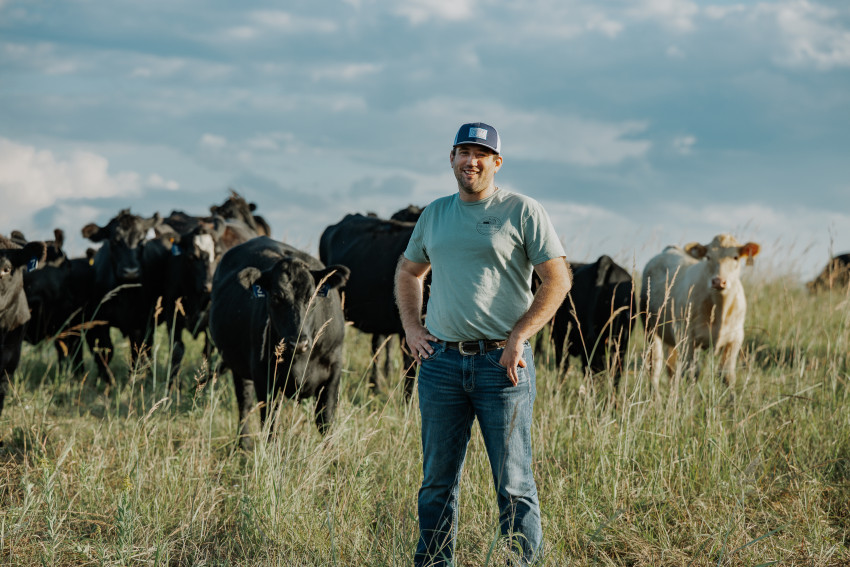 Eisenbarth has collaborated with a company called LandLogic, which has developed a model for farmers and ranchers to think about mental health from the perspective of their own land. It’s a unique perspective — one that’s perfect for farmers and ranchers. One of their initiatives is to train health providers on working with farmers and ranchers.
Eisenbarth has collaborated with a company called LandLogic, which has developed a model for farmers and ranchers to think about mental health from the perspective of their own land. It’s a unique perspective — one that’s perfect for farmers and ranchers. One of their initiatives is to train health providers on working with farmers and ranchers.
“LandLogic trains rural health care providers about the realities of farm life — and that’s where progress begins,” Eisenbarth says.
ADJUSTING THE DIALS
From his experience with loss in his family to developing an approachable way to have difficult conversations about mental health with farmers to working with LandLogic on training health care providers about the intricacies of farm life, Eisenbarth is paving his way to making an invaluable impact on rural mental health in Kansas.
Winning the Rural Minds Matter Young Advocate of the Year award isn’t about notoriety for him, it’s about turning up the dial on advocating for our family, friends and neighbors in agriculture.
“For me, it’s not about recognition,” Eisenbarth says of winning the award from Kansas Farm Bureau. “It’s about using the platform to have the conversations that need to happen and reaching people where they are — and honestly, being ready for someone to say they aren’t OK when you ask them. That’s where the real work starts.”
Mental health isn’t a switch you turn on or off — it’s a dial you learn to adjust. Thankfully, people like Eisenbarth are finding ways to recognize where the dial needs to be for farmers and ranchers — one small adjustment at a time.
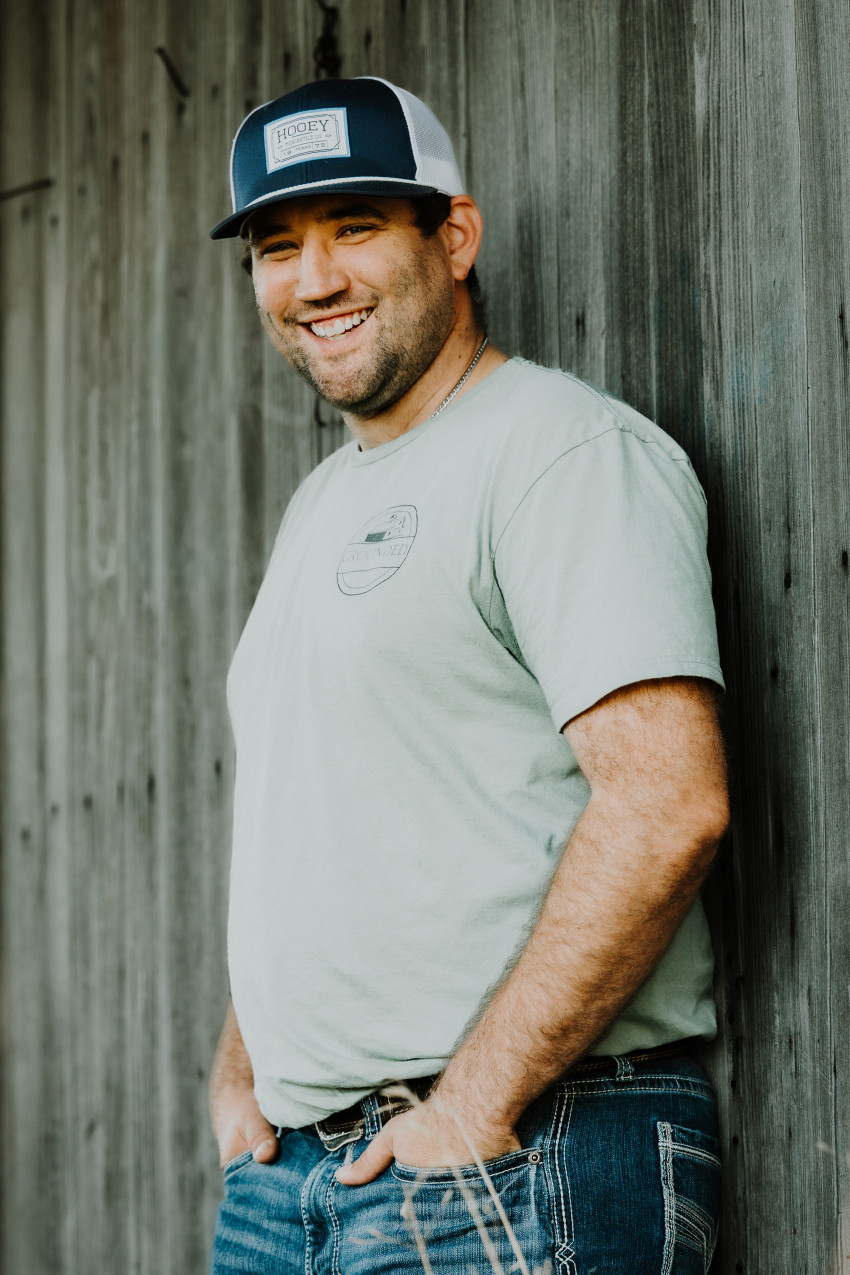 Learn more about Eisenbarth through his Grounded Ag Facebook page. If you or someone you know is experiencing a difficult time, please reach out to 988. For other resources and to learn more about mental health initiatives, visit www.kfb.org/ruralmindsmatter. Applications and nominations for the 2026 Rural Minds Matter Advocate of the Year Awards will open in May 2026 to honor Mental Health Month.
Learn more about Eisenbarth through his Grounded Ag Facebook page. If you or someone you know is experiencing a difficult time, please reach out to 988. For other resources and to learn more about mental health initiatives, visit www.kfb.org/ruralmindsmatter. Applications and nominations for the 2026 Rural Minds Matter Advocate of the Year Awards will open in May 2026 to honor Mental Health Month.



